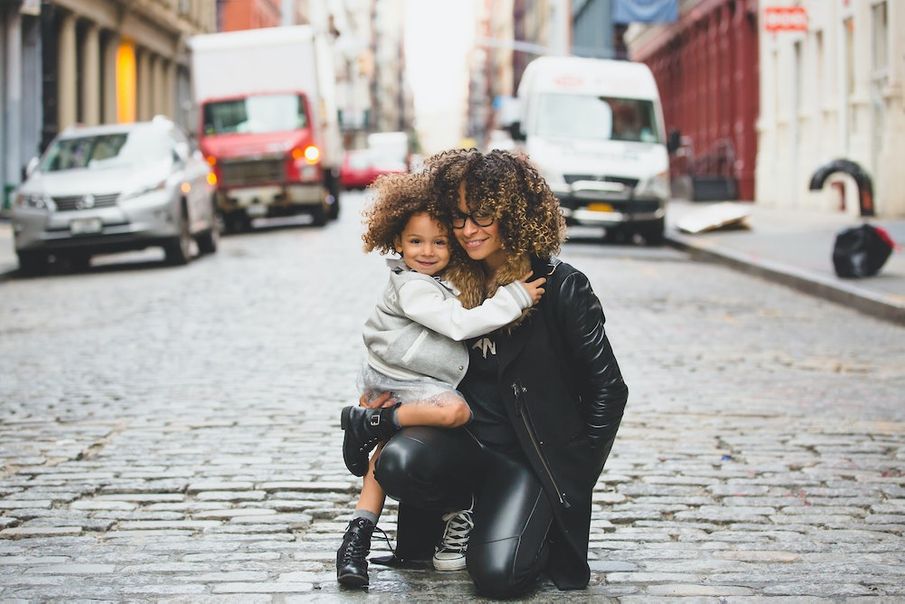Becoming a parent is life-changing in many ways, but with much of your baby’s first years centred on their development and milestones, some new mums can lose their own identity in the process. Outside of the nappy changes, baby classes, and lullabies, how can new mums connect with themselves again?
I’ll be honest: the moment I found out I was pregnant, I was terrified. There was no doubt that I wanted to become a parent (I’d even had fertility treatments in the past), but I was petrified at how life would never be the same again.
My son arrived in May 2019 and, at first, I was so completely wrapped up in bonding with him that work, friends, and hobbies didn’t seem to matter as much. But a few months on, with sleep deprivation in full swing, my feelings of awe gave way to ones of resentment and loneliness.
My husband’s life had seemingly gone back to normal after two weeks of paternity leave, but I didn’t even recognise myself in the mirror. Not only did I look physically different, but my life had completely changed, too. I felt like everything that had defined me – my work, my friends, my hobbies – had gone, and the only role I had was to be a mother. And don’t get me started on baby brain; I thought it was just the punchline to a joke, but I struggled to get out of the house most days without leaving something behind.

Don’t get me wrong, it is the most rewarding role of all, but I felt like I’d lost the person I was before. I couldn’t remember the last time I had a conversation that didn’t revolve around nappies or bottles. Who was I?
Now, 18 months on, I finally feel as if I’ve worked hard to find who I am again: both as a mum, and outside of it. Here are five things that I found really beneficial, and I hope might help you...
1. Learn something new
There’s a temptation to use nap time to tidy the nursery or tackle the washing up, but it’s pretty much the only part of the day you’re not holding the baby, so why not use it to do something for you? At the start of lockdown in the UK, I set myself a simple goal of spending 15 minutes a day learning something new.
There are so many different online courses, and committing to just spending a short burst of time learning about something that isn’t baby related can be really helpful and constructive.
2. Get outside and exercise
In those early postpartum days, I barely moved off the sofa, but once you are more recovered, exercise can help you feel as if you can conquer anything. I know there are plenty of mum and baby exercise classes, but during the summer, I took up running in the evening, as soon my husband got home from work. Those 30 minutes just for me meant I actually looked forward to exercise, and it cleared my head so I could enjoy my evening.

3. Don’t feel guilty if you want to return to work
I returned to work officially after eight months, but also used my keeping-in-touch days before that. Much of the decision to return to work was, of course, financial, but I’ll be honest, a lot of it was also because I really wanted to get back to the job I loved, and that made me feel like ‘me’ again. Every mum is different, with regards to choosing to spend longer at home or wanting to return to work sooner. Don’t let anyone judge you for the decisions you make – you have to do what’s right for you.
4. Chuck out your pre-baby clothes
Another reason I felt so disconnected from myself as a new mum was because I physically changed so much during pregnancy – even my shoe size got bigger! Not only did much of my wardrobe not fit, but a lot of my old clothes just didn’t feel practical with a baby around. So rather than look at it longingly in my wardrobe, I took clothes to the charity shop. This was a chance to treat myself and find a new style for the new me.
5. It’s good to talk
Sometimes you can feel as if you’re a bad mother for wanting ‘me time’, but lots of your friends will feel the same way – even that mum at the baby group who seemingly has it all together. Snatching moments to have conversations about how you’re feeling is really important, and even better if it can be done over Facetime with a glass of wine while your baby is tucked up in bed.
It’s also worth noting that talking to a professional might help, too. Around one in 10 mums struggle with postnatal depression, so if your feelings persist, talk to your doctor who will be able to recommend support networks, medication, or talking therapies that can help. I struggled with severe postnatal anxiety after my son was born, and was referred for cognitive behavioural therapy (CBT), which has helped hugely.
It might not seem like it now but, one day, I promise you will feel yourself again. Being a mum is an amazing thing, but don’t forget all the things that make you amazing too.
Support groups for new mums
Mumsmeetup.com helps mums across the UK connect to socialise and find support.
Search ‘Mums Matter’ on mind.org.uk to access perinatal mental health support developed by mums, for mums.
Join ‘The Motherload’ Facebook group for non-judgemental venting and laughter at all aspects of raising kids.
Find more local support groups across the country on the free Happiful app available via Apple and Android.


Comments